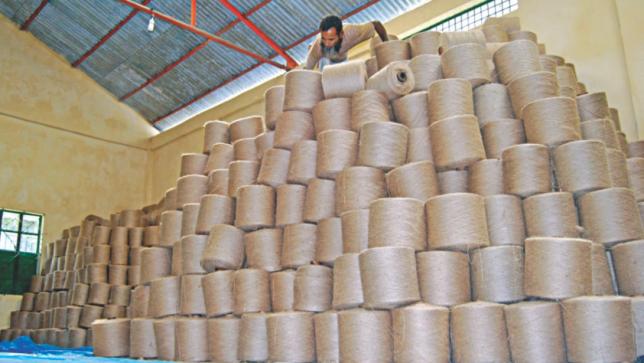Stimulus for jute millers

The government has offered a stimulus package to debt-stricken jute millers with a view to giving a boost to export earnings by the sector.
Under the package, banks will move the outstanding loans of a debt-ridden miller to a block account and offer a two-year grace period to repay the loans.
The millers will also get a repayment period of 10 years and a lower interest rate, to be set based on the cost of fund of banks, according to a central bank notice sent to lenders on Monday. The central bank issued the circular as per an instruction of the finance ministry.
The ratio of defaulted loans in the jute sector stood at 19 percent of the total outstanding loans of Tk 7,961 crore as of June last year, according to data from the central bank.
The amount of default loans have significantly gone up this year but the central bank is yet to collect the latest figure of non-performing loans from lenders, said a Bangladesh Bank official.
As per the new package, the jute millers with a block account facility will become defaulters if they fail to pay back four consecutive quarterly instalments in a year.
As per traditional banking rules, clients turn into defaulters if they do not provide any instalment for six months. The package will be cancelled if a miller defaults on instalment payments.
Jute millers' outstanding loans as of October this year can be transferred to the block account. The facility can also be extended to those who earlier enjoyed the same benefit but became defaulter because of poor business.
The central bank, however, said millers will avail the facility based on the bank-customer relationship. After transferring loans to the block accounts, the court cases filed earlier by banks against the defaulted millers will be settled on mutual understanding.
The government has come up with the package following repeated appeals from Bangladesh Jute Mills Corporation, Bangladesh Jute Mills Association, and Bangladesh Jute Spinners Association, the central banker said.
Last fiscal year, the sector brought home $1.02 billion in exports, up 6.56 percent year-on-year, according to data from the Export Promotion Bureau.
